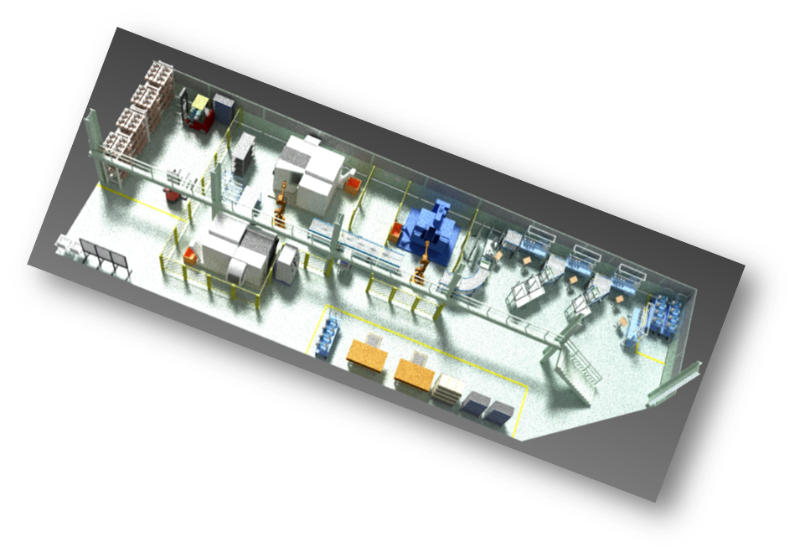Lecture with introduction to digital factories:
- What is a digital factory and why is it needed?
- Relations between digital and real factories.
- An example of a digital factory with its software for discrete production.
Guest lectures from industry about use and benefits of digital factories
Lectures about and exercises and assignments in information modelling, databases and information standards
Computer exercises in software used for development of and data handling in digital factories
Project about a concrete application of a digital factory
After passing the course, the student will be able to:
- explain what is meant by digital factories and their relation to real factories
- use selected IT tools as part of a digital factory for production development
- use information modelling to describe and specify information and information flows in a digital factory
- analyse and explain in own words how information can be handled and coordinated between different IT systems in a digital factory
- adapt and evaluate the information model of a digital factory to changed prerequisites and in own words describe benefits and drawbacks of different solutions
- propose and motivate how an information architecture should be designed to be able to combine development information with large amounts of data from the production process
